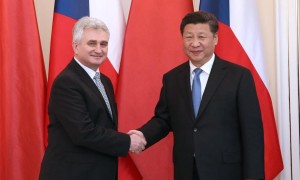then and there, now and then
这两个短语的意思并不相同:then and there的意思是“当时当地”,含有时间和空间的双重概念; 而now and then的意思是“有时,时而,不时”,只有时间概念,没有空间概念。
then, accordingly, consequently, hence, so, therefore, thereupon, thus
这组词共同的意思是“因此; 所以; 于是”,它们的区别是:
1.so, then和thus是一般用词; accordingly, consequently, hence, therefore和thereupon是正式用词。
2.so和then常用于简洁的日常谈话,语义较轻,只表示因果关系或逻辑顺序,而不一定表示严格的推论关系。
3.accordingly, consequently, hence, therefore, thereupon和thus都表示因果关系。accordingly语气较缓和,常译为“于是”; consequently一般不强调因果间的必然联系,而只是根据逻辑推理得出的结果; hence表示合理的推断,指出原因及其必然结果,但更强调原因; therefore强调因果间的逻辑关系,多用于表示严密推理或精确论证的郑重场合,故常用在数学、逻辑学等领域; thereupon则指“作为…的结果”; thus的意思和hence, therefore相近,但更正式庄重。
4.accordingly常位于(分句)句首或句中; consequently, hence常位于(分句)句首; so只用于分句句首; then常用于分句句首,有时用于句末; therefore和thereupon常用于(分句)句首,有时用于句中; thus常用于(分句)句首。
5.consequently, hence, so, then, therefore和thereupon前有时可加and; accordingly前偶尔可加and; thus前一般不可加and。
6.hence常引导省略句; thus还可跟现在分词短语表示结果或目的。










